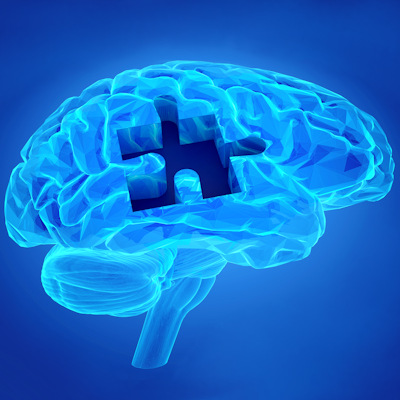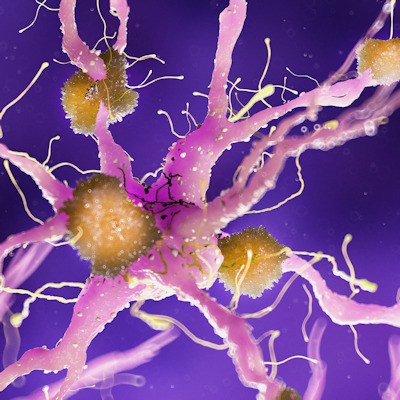February 23, 2023 -- A National Institutes of Health (NIH)-funded consortium has found that measuring a key blood molecule may identify the degree to which impaired blood flow to a patient’s brain contributes to dementia.
The research, published on February 23 in Alzheimer's & Dementia: The Journal of the Alzheimer's Association, may also help doctors distinguish between the most common sources of dementia.
Cerebral small vessel disease, a common disease marked by damage to the cells lining the brain's blood vessels, is a major contributor to cognitive problems and dementia in older adults. However, it can be difficult for doctors to determine whether a patient's cognitive impairment stems predominantly from Alzheimer's disease or vascular problems, the two most common causes of dementia. Doctors typically rely on MRIs or CAT scans to detect evidence of brain injury in order to make that determination. However, such imaging is imprecise.
The consortium, called MarkVCID, sought a blood-based biomarker associated with traditional measures of vascular injury that would allow clinicians to determine whether a patient had vascular-related dementia rather than Alzheimer's disease.
"Increasingly there's a recognition that we can use the bloodstream as an available but imperfect tool to understand who maximally benefits from structural and functional imaging tools," UCLA associate professor and lead author Dr. Jason Hinman said in a statement. "It may also tell us who might be the best candidates for some of the really new emerging drugs that are available on the market to treat cognitive impairment and dementia."
The researchers hypothesized that the body might respond to damaged small blood vessels with intensified efforts to grow more vessels. They identified the signaling involved in the formation of new blood vessels, called angiogenesis, as a potential biomarker. One of those signals, called placental growth factor (PlGF) -- a key molecule involved in angiogenesis -- had previously been associated with cerebral blood flow regulation. The data suggested that PIGF might be a useful biomarker for identifying patients with cognitive impairment and dementia due to vascular brain injury.
The researchers found that patients with higher levels of PlGF were more likely to have evidence of brain injury or functional cognitive impairment as measured by the Clinical Dementia Rating Scale.
At the University of California, Los Angeles (UCLA) and four other sites, 335 patients underwent brain imaging, cognitive testing, and blood collection. Those in the top quartile for PlGF measurement were three times as likely to have cognitive impairment or dementia compared to those in the bottom quartile. Every unit increase in total PlGF in the bloodstream was also associated with a 22% increase in the likelihood of having cognitive impairment and a 16% increase in the likelihood of showing imaging evidence of cerebral small vessel disease.
The researchers are now studying whether PlGF and other angiogenic bloodstream markers could help predict the risk of future cognitive decline.
Copyright © 2023 scienceboard.net











